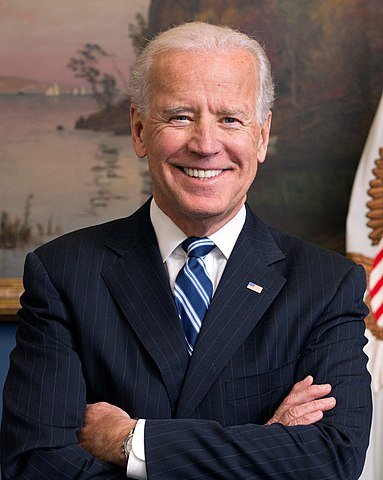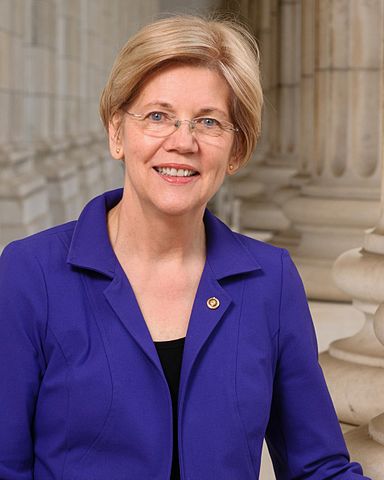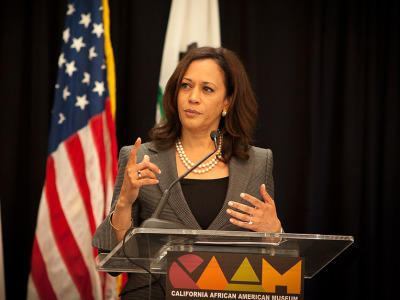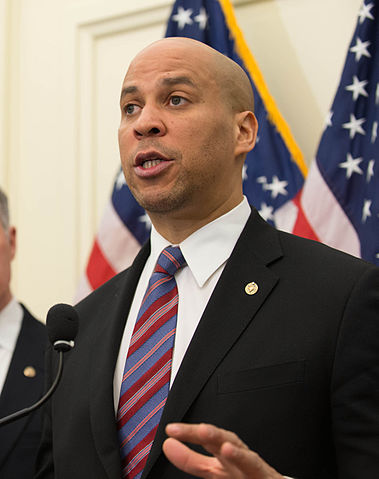If just one environmental issue comes up during the Democratic debates scheduled for Wednesday and Thursday, there’s a pretty good chance it will be climate change, a subject Republicans prefer to avoid but Democrats trip over themselves to talk about.
Most of them offer bold plans, but whether a Democratic administration could get climate change legislation passed is an unanswered question at this point, as it depends on the makeup of the House and Senate following the 2020 elections. If the Senate remains controlled by Republicans, which some pundits feel is a better than even bet, climate change legislation is likely a long shot.
Here, then, is a rundown on where some of the top-polling candidates stand on the environment, as gleaned from their websites, position papers and other sources.
Joe Biden
Despite missteps that have left the Democratic base perplexed and annoyed at times, the former vice president stands atop the polls at somewhere above 30%. He touts his long history with climate change, having cosponsored legislation in 1986 that did not pass but ended up in a funding bill the next year.
Essentially, it required the president, at that time Ronald Reagan, to address climate change mitigation.
“It was a plan to make a plan,” Josh Howe, professor of history and environmental studies at Reed College, told PolitiFact. “Which, of course, neither Reagan nor [George H.W.] Bush ultimately did."

Former Vice President Joe Biden
Now, Biden is endorsing the Green New Deal (GND), which also calls for development of a plan, this time with the goal of achieving net-zero greenhouse gas emissions by 2030. Biden adds a deadline of 2050 to that and says he wants to ensure the U.S. has a “100% clean energy economy” by that date.
Of interest to growers, Biden says agriculture is “a key part of the solution to climate change. Advanced biofuels are now closer than ever as we begin to build the first plants for biofuels, creating jobs and new solutions to reduce emissions in planes, ocean-going vessels, and more.” He also wants to “decarbonize” the food and agriculture sector, and “leverage agriculture to remove carbon dioxide from the air and store it in the ground.”
Biden wants to invest in “climate-friendly farming such as conservation programs for cover crops and other practices aimed at restoring the soil and building soil carbon, and in the process, preventing run-off and helping family farmers deploy the latest technologies to maximize productivity,” according to his campaign website.
“He will create new opportunities to support deployment of methane digesters to capture potent climate emissions and generate electricity. With these efforts, family farmers can benefit and help lead the Clean Energy Revolution.”
Bernie Sanders
The independent senator from Vermont, who built up grassroots support in an effort to win the Democratic nomination in 2016, is back again this time, stumping on the same issues that made him a surprise contender. He, too, is a GND endorser and specifically addresses farming and rural communities, making a pitch for “comprehensive legislation to address climate change that includes a transition to regenerative, independent family farming practices.”
In addition, Sanders supports a “transition to more sustainable management of livestock systems that are ecologically sound, improve soil health, and sequester carbon in soil.” He also wants to compensate farmers for improving ecosystems and set up a program “to permanently set aside ecologically fragile farm and ranch land.”
Sanders has fluctuated wildly in polls. A recent POLITICO/Morning Consult poll showed him with 19%, half of Biden’s share.
Elizabeth Warren
The Massachusetts senator has earned good reviews from the pundits recently, who have highlighted her frequent answer to questions on the campaign trail: “I’ve got a plan for that.” In most cases, she does. Her doggedness and ability to speak at length on a variety of subjects have contributed to her staying steady at number three among the candidates.

Sen. Elizabeth Warren, D-Mass.
Warren wants to invest $2 trillion over the next 10 years in “green research, manufacturing, and exporting — linking American innovation directly to American jobs, and helping achieve the ambitious targets of the Green New Deal.”
Warren also wants to create a National Institutes of Clean Energy and provide adequate funding for the Agricultural Research Service and USDA’s principal grantmaking agency for research, the National Institute of Food and Agriculture.
In the non-environmental realm, Warren pledges to tackle consolidation the ag industry and guarantee farmers a right to repair their machinery.
Pete Buttigieg
“Mayor Pete” of South Bend, Ind., the breakout star of the 2020 campaign, has had to curtail campaign activities as he deals with the fatal shooting of an African-American resident by a white South Bend police officer. He nonetheless remains in the top five in polling, though well behind the frontrunners.
Buttigeieg (pronounced Buddha-judge) provides fewer details on his positions than the other candidates. His website says he wants to Implement a “Green New Deal with all available tools including a carbon tax-and-dividend for Americans, and major direct investment to build a 100% clean energy society.” He also says he wants to “strengthen rural resilience and protect rural communities from environmental hazards.”
Kamala Harris
The California senator’s candidacy bears some resemblance to the one run by former president Barack Obama, who also was a first-term senator known for his oratorical skills. Harris has consistently been in the top five in the polls and looks to rise further if Buttigieg takes a serious tumble.
Her website is long on rhetoric but light on details. “While the climate threat is great, so is our opportunity,” she says. “With American ingenuity and imagination, we can forge a Green New Deal to tackle the climate crisis, build a clean economy that creates good-paying jobs for the future, and confront environmental injustice head on.”

Sen. Kamala Harris, D-Calif.
How does she plan to do that? By “modernizing our transportation, energy, and water infrastructure [and] accelerating the spread of electric vehicles, solar panels, and wind turbines.”
Beto O’Rourke
The former congressman gained nationwide recognition for giving Republican Sen. Ted Cruz a tough reelection bid last year, and then jumped into the presidential race in March. He has failed, however, to translate his support in Texas, where he got more votes as a Democrat in the state’s history, into nationwide backing, and is hovering in the low single digits in polls.
O’Rourke has a fairly robust environmental platform, pledging that the first bill he sends to Congress will call for “a 10-year mobilization of $5 trillion ... the world’s largest-ever climate change investment in infrastructure, innovation, and in our people and communities.”
O’Rourke also offers a promise to “create unprecedented access to the technologies and markets that allow farmers and ranchers to profit from the reductions in greenhouse gas emissions they secure; leverage $500 billion in annual government procurement to decarbonize across all sectors for the first time, including a new “buy clean” program for steel, glass, and cement; and require any federal permitting decision to fully account for climate costs and community impacts.”
Cory Booker
The New Jersey senator is no shrinking violet, recently calling on Biden to apologize for recounting how he was able to work with segregationist senators when he first came to Capitol Hill. (Biden did not apologize.) His campaign, however, has not caught on with voters, as polls show him treading water at around 2-3%.
As a vegan — he says he eschews meat because of its environmental impacts — Booker may face some challenges in the Iowa Caucus. He has consistently criticized concentrated animal feeding operations (CAFOs) for air and water pollution, as when he described a trip to Duplin County, North Carolina, last year.

Sen. Cory Booker, D-N.J.
“I saw pig waste being sprayed,” he said at an Environment and Public Works Committee hearing. “I saw how the wind was carrying the mist. … I smelled what was a wretched, horrible smell standing hundreds and hundreds of yards away, and how that smell permeated the entire community. I heard heartbreaking stories from residents who said they too often felt like prisoners in their own homes.”
His website says he “is committed to addressing climate change with an eye toward its impact on vulnerable communities” but offers little detail.
Amy Klobuchar
The Minnesota senator has barely registered in polls, and it’s not clear how long she can remain in the race without getting a boost from her debate performance. And that will be tough to do with nine other candidates on the stage. Klobuchar vows, like many of the other candidates, to get the United States back into the Paris climate change accord.
On an issue near and dear to corn growers and ethanol backers, she says she wants to “end the misguided overuse of secret [Renewable Fuel Standard] small refinery waivers that have been granted to big oil companies at the expense of farmers.” Klobuchar would “completely overhaul the EPA’s small refinery waivers and greatly increase transparency, ensuring that RFS waivers meant for small refiners do not go to big oil companies like Chevron and ExxonMobil and that these secret waivers do not line the pockets of big oil companies at the expense of farmers.”
The candidates discussed above represent only about a third of all the Dems who have declared. Some other notables, who cluster near the bottom of the polls, include Sen. Kirsten Gillibrand of New York (“We can get to a net-zero emissions economy by creating tax incentives to reward innovation and investment in renewable energy technology”); former HUD Secretary Julian Castro (climate change is “"the biggest threat to our prosperity in the 21st century"); Washington Gov. Jay Inslee, who has made climate change the only issue in his campaign; Colorado Sen. Michael Bennet, who wants to conserve 30 percent of America’s lands and oceans by 2030; and Andrew Yang, whose big proposal is Universal Basic Income, a guaranteed $12,000 a year for every American over the age of 18.
For more news, go to www.Agri-Pulse.com


